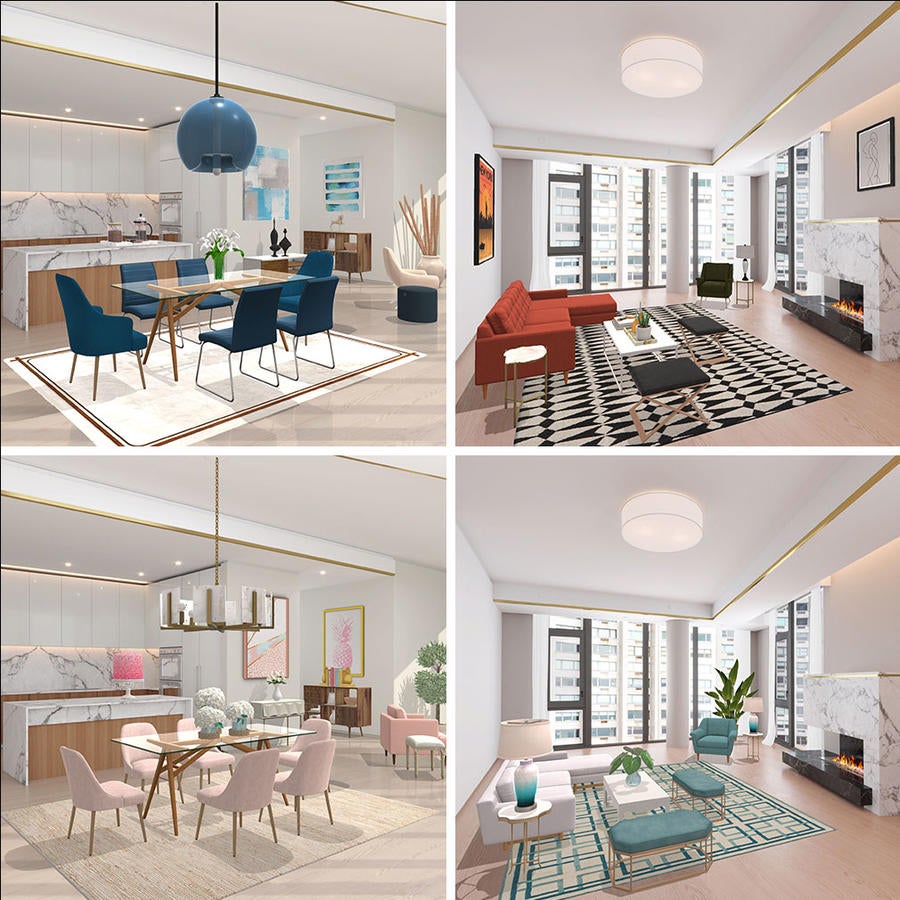Shoppable staged apartments are on the rise as brands seize the chance to bring their products to life in relatable (and Instagrammable) settings. Just last week, Industry West teamed up with Snowe to outfit the penthouse at 70 Pine, while last year, Neiman Marcus designed a $4.2 million model unit at 15 Hudson Yards, and Radnor did the same for two condos in The Bryant. The idea for all of these is the same: Developers get to show off a for-sale condo, and brands get to bring their products to life in a setting that consumers can relate to.
This month West Elm is tapping into a similar dynamic with its first-ever Holiday House, a Greenwich Village four-bedroom staged with the brand’s (and its partner’s) products—but there’s a very #2019 twist. West Elm is not only monetizing what would normally be a real estate listing, it’s gamifying the apartment.
The brand partnered with Design Home, a mobile gaming app where users complete “challenges” to decorate rooms with actual furniture from a variety of companies (including West Elm). The app is wildly popular, with more than a million active daily users. “Our mission is to change the relationship between brands and consumers by having them meet in a playground,” says Design Home general manager Chris McGill. “Our players call it ‘Pinterest, the game.’”

For this collaboration, Design Home created two challenges for users: decorating Holiday House’s living and dining rooms (the renderings are impressively accurate) exclusively with West Elm items. The prize for completing the challenges? A coupon to West Elm. Just under a million rooms were created by users, and 90 percent of participants were outside of New York. According to Design Home, the Holiday House contest generated 22 percent more submissions than a typical challenge.
“We strive to create real-life value for our players, and we’re always talking to our partners about things they’re doing that we can bring to life in the game,” says McGill.
The collaboration with Design Home was only one of many promotional activations West Elm rolled out with the Holiday House. The company also partnered with StreetEasy to find the apartment in the first place, documenting the search in a reality show broadcast from the brand's Instagram channel (it now lives on YouTube, and as a saved Highlight). The brand also did a lot IRL, from a dinner party with Alison Roman to a DIY centerpiece workshop with Popup Florist, and consultations with the West Elm Design Crew. All the events, which accommodate 15 to 25 people, filled up within 72 hours of opening, and there’s a waitlist for the remaining consultation appointments.
West Elm’s omnivorous approach to marketing its Holiday House speaks to a noisy omnichannel marketplace, where different demographics buy in radically different ways. In 2019, brands are wise to turn monetization opportunities into content opportunities—and vice versa. Increasingly, there’s little difference between them.
Homepage photo: Courtesy of West Elm





























